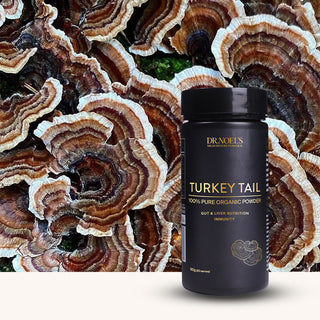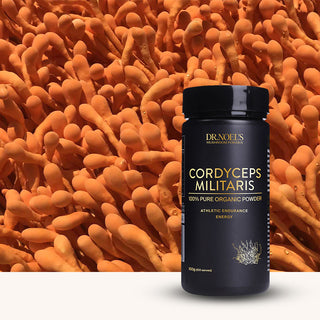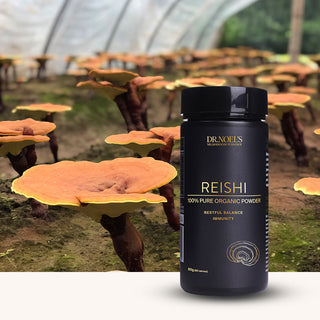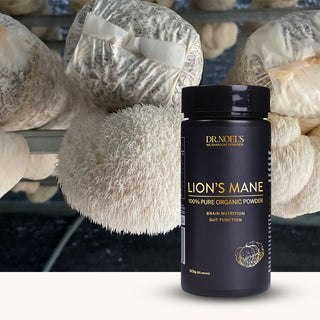According to the World Health Organization, elevated blood pressure, or hypertension, affects an estimated 1.28 billion adult population globally, most (two-thirds) of whom live in middle to low-income countries. In addition to dementia, heart failure, chronic kidney disease, and arrhythmia, it is the leading risk factor for cardiovascular diseases, including coronary heart disease, heart attack, and stroke.
Trametes versicolor, or turkey tail mushrooms, are a rich source of nutrients such as amino acids, dietary fiber, proteins, sterols, vitamins, and minerals that may impact cardiovascular processes. Scientists have studied turkey tail mushrooms as a potential dietary supplement for regulating hypertension while minimizing cardiovascular events.
The post dives deep into the research around the anti-hypertensive properties of Turkey tail mushrooms.


Exploring The Research Behind Turkey Tail Blood Pressure
Hypertension is caused by the narrowing of the blood vessels, increasing the pressure within the vascular lumen. The increase in vascular blood pressure is a risk factor for heart disease. If hypertension remains untreated, the individual is at a high risk of experiencing cardiovascular events, heart failures, and hypertensive heart disease like cardiomyopathy.
Scientists have discovered compounds in Turkey tail mushrooms that can help widen the vascular lumen as well as improve heart function.
Here are the blood-pressure-lowering effects of Turkey tail mushrooms.
Turkey Tail may help dilate blood vessels
Turkey tail mushrooms help lower blood pressure. A possible explanation for this is that the mushrooms contain compounds such as nitric oxide (NO) that relax the blood vessels, causing them to dilate and allowing blood to flow more easily.
A 2016 study showed that beta glucans in Turkey tail mushrooms induce the production of NO from macrophages. This can help reduce the resistance to blood flow and lower blood pressure.
Turkey Tail may improve heart function
A 2023 study examined the biological activity and cardioprotective properties of Trametes versicolor heteropolysaccharides in rats with metabolic syndrome. In the study, 40 Wistar rats were divided into 5 groups, who were treated with either 300, 200 or 100 mg/kg mushroom polysaccharides per os for 4 weeks.
After finishing the treatment, researchers conducted several measurements, including assessing the blood vessels. The systolic and diastolic blood pressure was measured, as well as heart rate. These parameters were estimated at the beginning of the experimental period as well as at the end of the 4-week experimental protocol.
Results showed that the mushroom decreased blood pressure and had favorable effects on heart function. The results demonstrated that the mushroom heteropolysaccharides might be considered a valuable agent for cardio-protection and blood pressure reduction in metabolic syndrome. Researchers concluded that the exposure of animals with metabolic syndrome to a four-week supplementation of Trametes versicolor heteropolysaccharides had hypotensive effects.
Benefits Of Turkey Tail
Turkey tail is a mushroom that grows naturally in many parts of the globe, including Europe, North America, and Asia. Recent studies have revealed that Turkey tail has various health-promoting qualities, although it has a long history of use in traditional medicine.
Several compounds found in high-quality Turkey tail mushroom powder products can strengthen the immune system, reduce inflammation, and offer cancer protection. It is an excellent complement to any diet because it is also high in fiber and antioxidants.
Here are some of the notable benefits of Turkey tail mushrooms.
- Reduces side effects from cancer treatments and helps improve the quality of life for cancer patients.
- Has the capacity to enhance cognitive performance and prevent Alzheimer’s disease.
- Turkey tail extract can potentially treat skin diseases like eczema and psoriasis.
- Turkey tail contains bioactive compounds (such as PSK polysaccharides) and dietary fiber, which can help with digestion and gastrointestinal motility and exert anti-inflammatory effects in the gut.
- Turkey tail contains ergothioneine, which has anti-inflammatory and antioxidant properties.
- Polysaccharides and glycoproteins found in Turkey tail have demonstrated potential for decreasing inflammation.
- Polysaccharide-rich turkey tail is thought to have the ability to regulate blood sugar.
- Can help decrease inflammation and increase collagen formation in the skin.
- May aid in reducing bronchitis and influenza symptoms as well as improve lung function.
Choosing the right turkey tail mushroom supplement for your health is not so easy. When attempting to enhance health to lower blood pressure, it is imperative to use high quality supplements and products (rather than low quality ones).
Look for products that use the mushroom’s fruiting body rather than the root system (mycelium). Additionally, if you want to make sure you’re purchasing the best turkey tail mushroom products, search for ones whose ingredients label includes the amount of beta-glucan and that only organic mushrooms were used.
FAQs About Turkey Tail Blood Pressure
Is Turkey Tail Good For The Heart?
Turkey tail mushrooms are a good source of fiber, which promotes heart health and reduces the risk of cardiovascular diseases. Additionally, they contain several antioxidants, which combat inflammation and lower your risk of disease in general.
Can You Take Turkey Tail While On Anti-Hypertensives?
Turkey tail mushroom and anti-hypertensive both work to reduce blood pressure, so taking both at the same time may excessively lower blood pressure. Consulting a healthcare provider before adding the supplement is recommended.
What Is The Turkey Tail Dosage For Reducing Blood Pressure?
Clinical studies do not support a specific dosage of Turkey tail for blood pressure lowering effect. However, despite taking up to 9 grams of Turkey tail daily, research has not shown any serious adverse effects.
Can Turkey Tail Cause Heart Palpitations?
Some people have reported mild symptoms such as palpitation while using Turkey tail mushrooms. Stick to the recommended dosage to minimize such side effects.
Can Turkey Tails Raise BP?
No evidence currently points to Turkey tail raising the blood pressure. Instead, the mushrooms help in reducing the pressure and thus hypertension.
Conclusion
The bioactive compounds in Turkey tail mushrooms can ameliorate hypertension. Beta-glucans in the mushroom stimulate the production of Nitric oxide, which can help relax the blood vessels. Additionally, heteropolysaccharides are known to improve heart function. Therefore, these compounds represent prospective therapeutic candidates that could be utilized to lower blood pressure.
- World Health Organisation. Hypertension
- International Journal of Biological Macromolecules. β-glucans from Coriolus versicolor protect mice against S. typhimurium challenge by activation of macrophages.
- Pharmaceuticals. Characterization, In Vitro Biological Activity and In Vivo Cardioprotective Properties of Trametes versicolor (L.:Fr.) Quél. Heteropolysaccharides in a Rat Model of Metabolic Syndrome.





